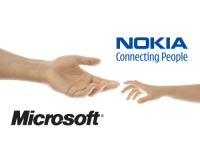I have over the last couple of weeks, upgraded my Apple Macbook pro from Mac OS 10.6 to 10.9. It’s been pretty easy until it came to Macports. There is/was a rumour that stopping at Version 10.8 was the best answer but this wasn’t available to me; they’ve stopped shipping it. The new version of MacOS was easy enough to install, just a download from the Apple Store which is good, although the consequent performance was shit and then we have to move Macports forward. This wasn’t so easy, and I document the steps I took at an article called Macports on my companion wiki. The fact there is so much mucking around is another proof point that Apple are not building a general purpose computer, but a desktop appliance and iTunes host.
…




